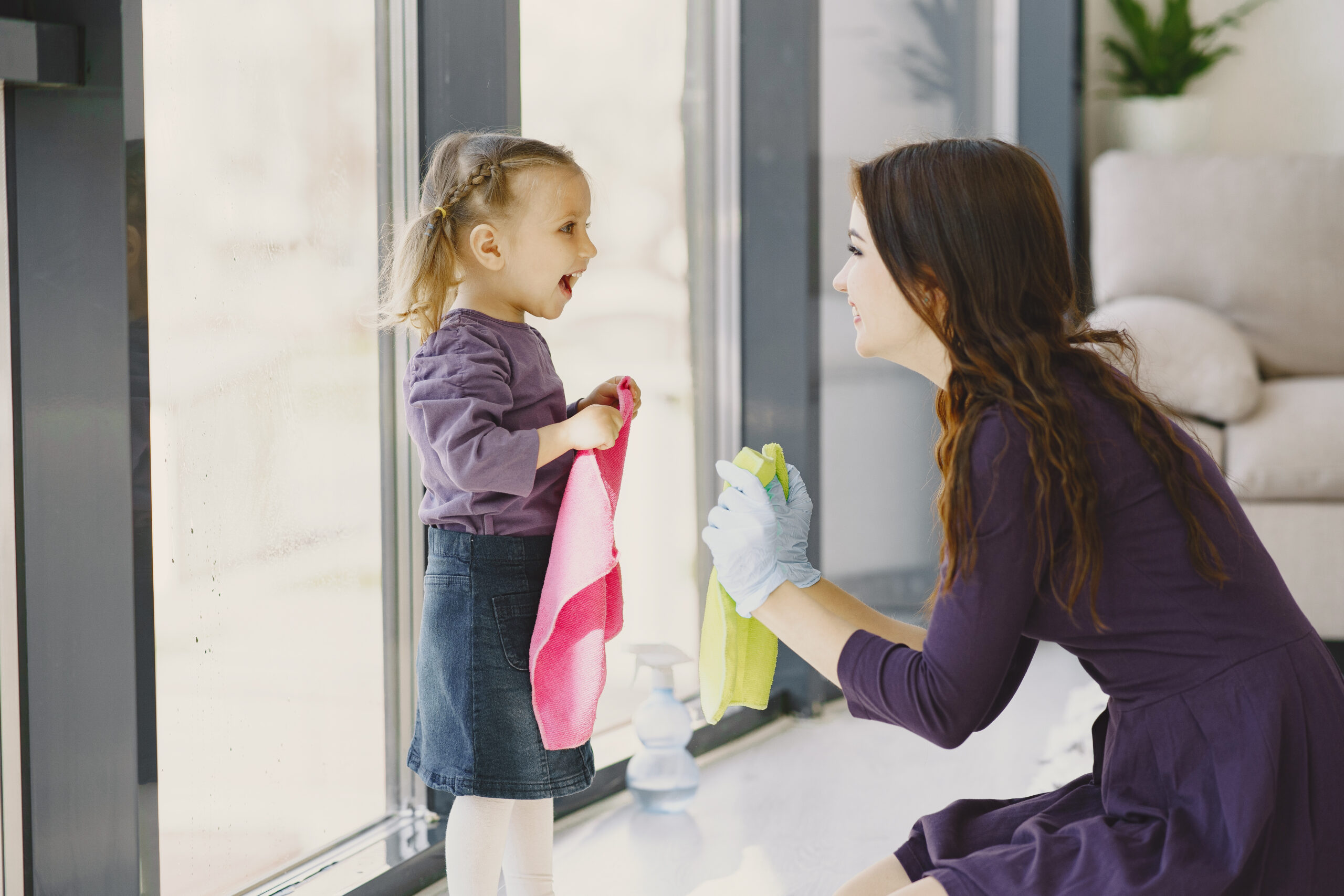Children’s immune systems are weaker than those of adults, so hygiene and cleanliness requirements are high in many childcare facilities. This also applies to educational institutions where young children study, namely schools and kindergartens. In addition to the standard daily cleaning of the premises, which includes washing the floor and disinfecting desks and tables, attention should also be paid to the cleanliness of windows. The following requirements apply to window cleaning in children’s institutions:
Health and safety regulations
Schools and kindergartens often operate under stricter regulations that govern cleaning practices to ensure sanitary conditions. Window cleaning protocols must align with these standards.
Non-toxic cleaning agents
Cleaning windows at schools and kindergartens requires using eco-friendly, non-toxic, and hypoallergenic cleaning products. Harsh chemicals that emit strong odors or leave harmful residues are avoided. This way cleaners ensure the safety of children and staff.
Frequent cleaning
Windows in these settings tend to accumulate more fingerprints, smudges, and dust due to higher activity levels and children’s tendency to touch glass surfaces. This requires more regular interior window cleaning Toronto schedules.
Protective measures
Ensuring that ladders, tools, and cleaning supplies are out of children’s reach during cleaning is crucial.
Timing and supervision
Cleaning is often done outside of school hours to prevent disruption and ensure the safety of children nearby during the process.
High-traffic areas
Windows near activity zones, such as play areas, corridors, or classrooms, tend to accumulate more dirt and need extra care during cleaning.
Attention to coatings
Some windows in schools and kindergartens may have specialized coatings (e.g., anti-glare or safety films) that require gentle, non-abrasive cleaning methods to prevent damage.
Frames and tracks
Dirt and dust in window tracks and frames can harbor allergens, making thorough cleaning essential for maintaining a healthy environment.
Glass clarity
Clean windows help maximize natural light, creating a welcoming and stimulating environment for learning and play.
In addition to cleaning the windows, you should also pay attention to the condition of the entire building. Depending on the area you are in, general cleaning may be required more often – for example, because of dust storms. By keeping the building clean, you help children learn and spend time in a healthy environment.




